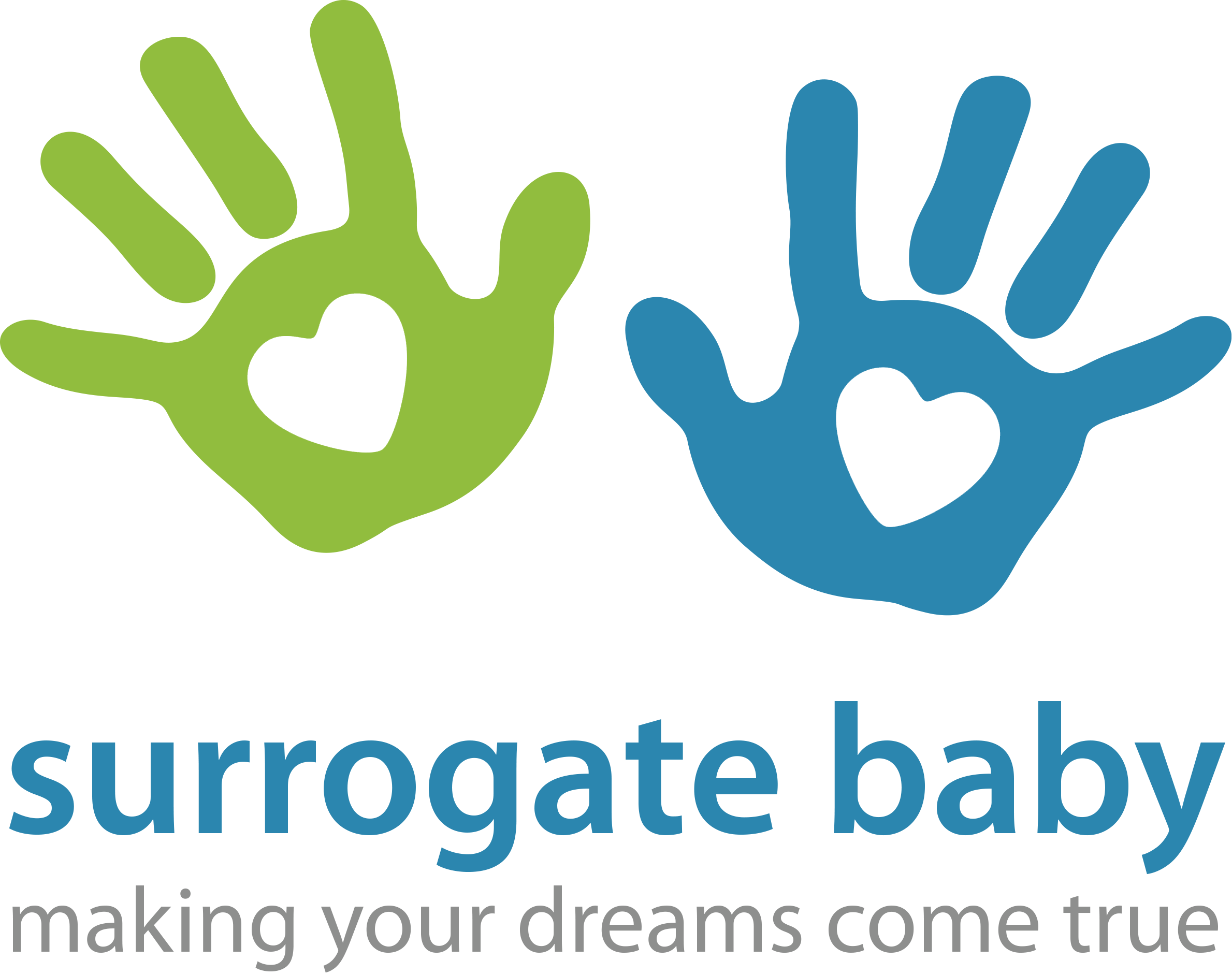 |
Today’s childbirth advances have opened up new doors for those with no hope of having a child of their own. The Portuguese media reported that Hérène Rodríguez, a Spanish model, and Cristiano Ronaldo, a soccer star, have again given birth to a twin brother and sister through surrogate mothers. Interest in surrogate mothers has been growing steadily. As a result, the conflict between people who oppose surrogate births for ethical and social reasons and those who approve it has been growing steadily.
What Is Surrogacy?
|
 |
Surrogacy is the process whereby a surrogate mother bears a child on behalf of an infertile couple, either by artificial insemination from the man or implantation of an embryo from the woman. However, using a surrogate mother to give a birth to another couple’s child has raised several ethical and social dilemmas.
Surrogacy works in two different ways: a traditional surrogate and in-vitro fertilization. Traditional surrogacy involves a second woman being artificially inseminated with the father’s sperm. In-vitro fertilization involves a gathering of eggs from the mother and fertilizing them with sperm from the father. The fertilized egg is implanted into a surrogate’s uterus, resulting in a child genetically unrelated to the surrogate.
Nowadays, the demand for surrogacy is soaring globally. Although the exact numerical value has not been accumulated, it is estimated that babies born through surrogacy in the US reached 2,200 in 2014, which is almost doubled the figure in 2007. Also, in the UK, in 2016, 400 babies were born through surrogacy, which is almost eight times more than surrogacy births in 2007. Furthermore, a clinic in India recorded 1,000 cases of surrogacy requested by foreigners, from 2004 to 2015.
The demand for surrogate mothers comes mostly from rich, highly educated couples in their late thirties. There are several opinions why surrogacy is steadily increasing every year. Various environmental problems, such as air pollution and water pollution, are deemed important factors affecting a mother’s health. Moreover, since many infertile couples prefer to have a baby with genetic ties, they choose surrogacy as an alternative to adoption.
|
 |
In case of surrogacy, an operation is performed in a specific place other than a usual hospital, such as a maternity clinic, and the degree of welfare and cost vary according to the type of clinic involved. Most surrogate mothers prefer to give a birth by caesarean section, but this has had a bad effect both on the baby and surrogate mother’s health. Surrogate mothers are counseled to withhold their emotions for the baby, and as such, they are not able to see the baby after delivery. Surrogate mothers are forced to fill in a parental authority waiver before delivery in order to remove any conflict with client. In this way, surrogacy is often viewed with a critical eye because it treats surrogate mothers as objects to give a birth.
Why people go Abroad?
|
 |
Those seeking a surrogacy solution need to make contract with a surrogate mother. In the US, it costs more than $150,000 to have a baby through surrogacy, of which $20,000 to $30,000 goes to the surrogate mother, $5,000 to 10,000 to egg donors (more payment goes to IVY League students, athletes, and models), $30,000 to the hospital, $20,000 to the surrogacy agency, $10,000 to lawyers and the rest of it goes to pay for insurance, overseas travel expenses, and daily necessities. Due to the high cost, many couples go to India, Mexico or Cambodia, where the cost for surrogacy is relatively cheaper. Especially, in case of India, it costs only $18,000 to $30,000, $8,000 of which goes to the surrogate mother. Therefore, many women in India or Cambodia are willing surrogates as it nets them a 10-year salary.
|
 |
In the case of China, in principle, surrogacy is prohibited by law, but as the Chinese Government has recently relaxed the one child policy, the demand for surrogate mothers has been increasing. According to the experts, 10,000 babies are born through surrogacy every year in China. The Chinese upper classes are reluctant to have inferior babies so prefer Chinese surrogate mothers, over foreign ones, recommended by friends or family. In addition, following research that indicates a child’s intellectual endowments depend on her mother’s intellectual endowments, many couples prefer to have a highly educated woman as a surrogate mother. However, those Chinese couples who hire American surrogate mothers push for immigration to the US as their child will be a US citizen and can apply for their parents’ green cards (permanent residency), when they turn 21 years old. In addition, Chinese parents want their children to have high quality education in the US.
Global Policies on Surrogacy
|
 |
In India, having no children is considered a sin. Therefore, commercial surrogacy has been legal since 2002. However, conflicts between surrogate mothers and clients, due to nonpayment, unexpected divorce, or fetus abnormality, have been increasing. Thus, the Indian Government drew up a bill which allows only Indian infertile couples access to surrogacy. There are hospitals for surrogate mothers in India, which contain delivery rooms and separate residences and provide diverse educational programs to ensure the mental and emotional well-being of the surrogate mothers. However, nowadays, foreign infertile couples hire Indian surrogate mothers (they are 30% cheaper than a local surrogate), which has resulted in an increase in of low income married surrogate mothers.
The UK operates its surrogacy system under clear and strict regulations and imposes a contract between a surrogate mother and a client. In the UK, before the couple takes their baby home they must undergo an interview with a social worker. Furthermore, related surrogacy groups advise that both surrogate mothers and couples get to know each other for at least three months prior to implantation. Thus, both the surrogate mother and the couple exchange opinions related to surrogacy, such as if the pregnancy should be terminated if any complications arise. Only couples that are married legally can hire a surrogate mother in the UK, and if a UK citizen wants to give a birth in a foreign country through surrogacy, it takes at least six months to be recognized as the legal guardians (parents) after entrance to a country.
|
 |
Those countries that are opposed to surrogacy claim that it contains ethical controversies. For instance, if the baby is born with a physical disability or is mentally retarded, it is likely that most clients will just abandon them or have an abortion if they notice this during the pregnancy. Also, the buying and selling of babies is same as human trafficking, which violates bioethics and safety acts worldwide.
In Thailand, surrogacy became illegal in 2015, but before then, Thailand was frequently visited by many infertile couples or same sex couples from Australia and the US, due to low costs of surrogacy. This is to protect surrogate mothers from being exploited as many are uneducated and are attracted to money equivalent to a 10-year salary. They have no idea of the dangers involved.
In the US, surrogacy is prohibited in most states except for California, Florida, and Connecticut. Germany and France strictly prohibit surrogacy under Embryonenschutzgesetz (human embryo protection laws) because it deals with life. Especially, in the case of France, there was a protest against gay marriage (‘Manif Pour Tous’). in October 2014, on the basis that such couples would exploit surrogacy. Slogans such as “Humans Are Not Commodities, ‘Against Surrogacy’, ‘Our Stomach Is Not a Caddy’ were witnessed in defense of traditional values.. Also, in most European countries, it is legal to be a surrogate mother without any payment as an act of community service, but surrogacy itself is illegal in Germany, Spain, France and Italy.
Surrogacy in South Korea
|
 |
In the case of Korea, the demand for surrogacy has been surging as the number of infertile couples has been increasing. Surrogacy in Korea costs approximately \70,000,000, with the total costs being closer to one hundred million won when living expenses are included. Surrogacy is illegal in South Korea, but according to data provided by the Kim Jae-Won Saenuri Party Health and Welfare Committee, the number of illegal surrogacy sites increased from 62 cases in 2013 to 90 cases in 2014, a 45.2% increase in just a year. Korea still has a negative perspective on surrogacy. According to a survey by Hallym University, 80% of Korean citizens have a negative view on surrogacy, and moreover, 83.4% hold a negative view of financial surrogate mothers and 83.3% hold a negative view of non-financial surrogate mothers. Big cities with highly educated people, such as Seoul, seem to have the highest concentration of negativity on this issue. Ethical issues are the main reason for the negative perspective: in Korea, even though a biological mother may give up her parental right, if she wishes to reclaim her parental right, the client must release the child to her custody. Therefore, regardless of a parental authority waiver, the biological mother eternally retains the right to custody of her child.
According to the Act on Bioethics and Safety Article 23, no one shall be allowed to offer or use, embezzle or arrange an embryo, oocyte or sperm on condition that money, property or other benefits are paid. Through this article, our country prohibits surrogacy. As surrogacy is attracting great attention nowadays, if it were to be legalized, it should only be as a last resort for infertile couples and thoroughly tested by the court. Also, it is imperative to set a clear and strict standard to determine the legal position of a surrogate mother.
The controversy surrounding surrogacy will not disappear. The craving for people to have families of their own is a natural part of life, but the ethical and religious problems, issues related to the rights of the surrogate mother and financial problems means a huge controversy still exists over the surrogacy issue. Government involvement seems essential to ensure a rational, compassionate system is implemented that protects the needs of the surrogate mother and the clients. Perhaps then, we might become a world open for surrogacy.
김지윤 jeeyoon0817@hanmail.net
<저작권자 © 인하프레스, 무단 전재 및 재배포 금지>

![[보도] 제43대 총학생회 후보자 공청회 개최돼](/news/photo/202404/11686_5015_2626.png) [보도] 제43대 총학생회 후보자 공청회 개최돼
[보도] 제43대 총학생회 후보자 공청회 개최돼
![[보도] 제43대 총학생회 후보자 공청회 개최돼](/news/thumbnail/202404/11686_5015_2626_v150.jpg)
![[보도] 총학생회장 선거 열려···학생사회 대표자는?](/news/thumbnail/202403/11668_5014_266_v150.jpg)
![[보도] 무전공·계열제 논의···학생은 어디에?](/news/thumbnail/202403/11666_5011_2238_v150.jpg)
![[보도] 인하 70돌, 다양한 행사 이어져](/news/thumbnail/202403/11663_5009_165_v150.jpg)
